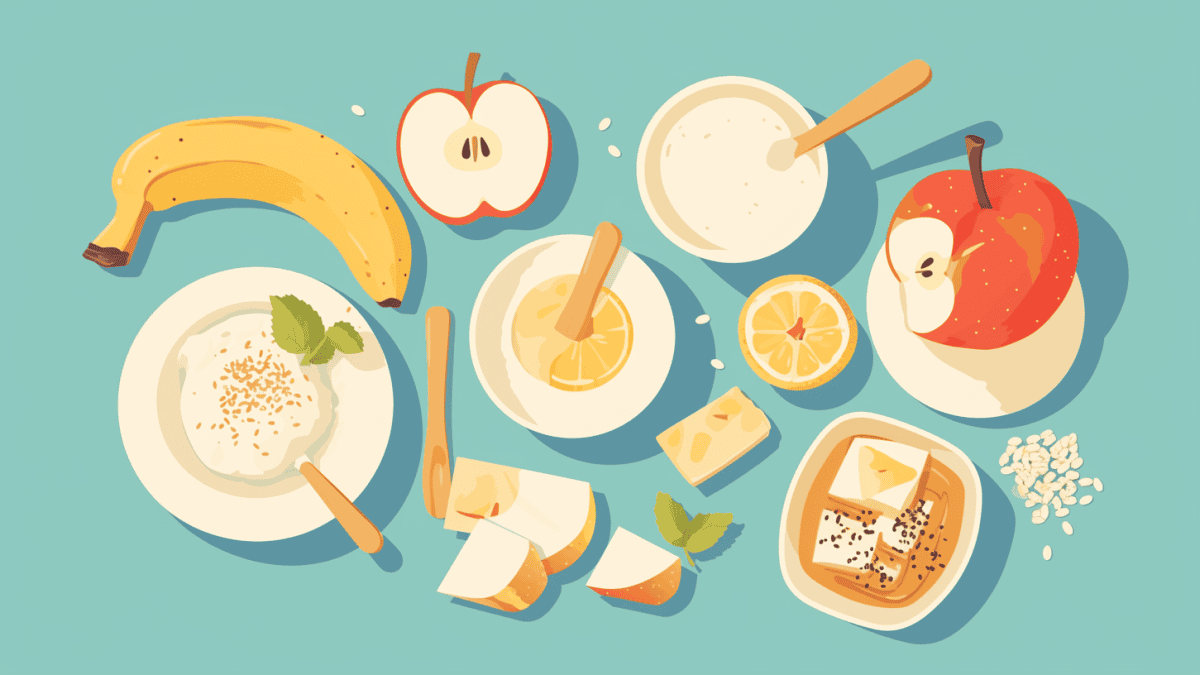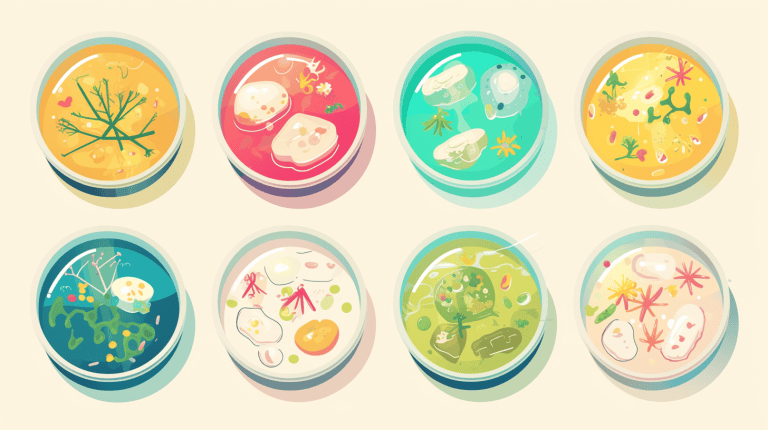Probiotics and Prebiotics: Why Your Gut Needs Both

Probiotics are live microorganisms, also known as good bacteria or beneficial bacteria. They play a role in maintaining a healthy gut. You can find probiotics in certain foods, such as yogurt, sauerkraut, kimchi (fermented cabbage), and miso (fermented soybean paste). Probiotics are also available in supplement form.
Prebiotics are a specific type of fiber that humans cannot digest. Instead, they act as food for the good bacteria that reside in your gut. Prebiotics promote the growth of these beneficial bacteria. Foods rich in prebiotics include whole grains, bananas, onions, and garlic.
Why You Need Both Probiotics and Prebiotics
Probiotics and prebiotics work together to promote a thriving gut microbiome. This translates to a range of benefits. They strengthen your immune system, helping you fight off infections and potentially reduce your risk of chronic diseases. Additionally, these gut-friendly elements can improve your mood, support healthy weight management, and even contribute to clearer skin. Let’s explore these benefits in more detail.
They Boost Your Immunity
Probiotics and prebiotics act as powerful allies for your immune system. By introducing beneficial bacteria, probiotics help create a thriving gut environment where good microbes outnumber the harmful ones. Prebiotics, in turn, provide nourishment for these good bacteria, helping them multiply.
This dynamic duo doesn’t stop there. They also promote the production of short-chain fatty acids (SCFAs). SCFAs are like superfoods for the cells lining your gut. They strengthen the gut barrier, making it harder for pathogens to invade your system. Furthermore, SCFAs help regulate inflammation, a key process in fighting infections. They also help train your immune cells to recognize harmful invaders faster.
The result? Your body becomes better equipped to ward off illness. The benefits extend beyond short-term infections – research suggests probiotics and prebiotics may also decrease your risk of chronic diseases like colorectal cancer, Type 2 diabetes, and heart disease.
They Improve Your Mood
Did you know your gut is often referred to as your “second brain”? This is because it has a complex network of nerves that communicate closely with the brain. Your gut even produces neurotransmitters like serotonin, which play a crucial role in regulating mood. When your gut bacteria are out of balance, this communication system can become disrupted, potentially leading to mood swings, anxiety, or feelings of low mood.
Probiotics and prebiotics can positively influence your mood by promoting a healthy gut-brain connection. Probiotics help balance gut bacteria, which may improve communication between your gut and brain. Prebiotics create an environment where beneficial bacteria, including those that may play a role in serotonin production, can thrive.
They Support Weight Management
Your gut bacteria play a surprising role in weight management, influencing how your body processes food, stores fat, and signals fullness. While they aren’t a magic solution for weight loss (remember, exercise is still crucial), probiotics and prebiotics can be a valuable addition to a weight loss or maintenance program. Certain probiotic strains may influence how your body processes and stores fat. Prebiotics promote the production of hormones that signal fullness to your brain, helping to control appetite.
They Enhance Skin Health
Probiotics and prebiotics work together to promote clearer, more radiant skin. Probiotics help reduce inflammation, a key factor in conditions like acne and eczema, and potentially balance oil production. They also strengthen your skin’s natural barrier, protecting it from environmental damage. Prebiotics nourish the beneficial bacteria already on your skin, helping them flourish and contribute to a healthy skin microbiome. This inside-out approach offers a natural way to support a glowing complexion.
Foods That Contain Probiotics
You can incorporate probiotics into your diet through several delicious sources:
Yogurt: Opt for yogurt containing “live and active cultures.”
Kimchi and Sauerkraut: These fermented foods are packed with beneficial bacteria.
Miso: This flavorful paste enhances dishes while providing a probiotic boost.
Kombucha: This fermented tea offers a refreshing dose of probiotics.
Foods That Contain Prebiotics
Prebiotics abound in fiber-rich foods such as:
Garlic, leeks, and onions: Flavorful and nourishing for your gut bacteria.
Bananas and apples: Convenient snacks with hidden gut health benefits.
Whole grains: Oats, barley, buckwheat, rye, and brown rice are excellent prebiotic sources.
Beans and legumes: Packed with both fiber and prebiotics.
Food vs. Supplements: Which Is Best?
Both dietary supplements and natural food sources offer advantages. Supplements provide concentrated doses and specific bacterial strains, while foods deliver a diverse mix of probiotics, prebiotics, and other valuable nutrients. For optimal gut health, a combination of both may be ideal.
The Bottom Line
Probiotics and prebiotics are powerful allies for a healthy body and mind. They strengthen your defenses, lift your mood, help manage weight, and promote clear skin. Start incorporating more yogurt, kimchi, whole grains, and other probiotic and prebiotic-rich foods into your diet today. Small changes can make a big difference in your overall well-being.


